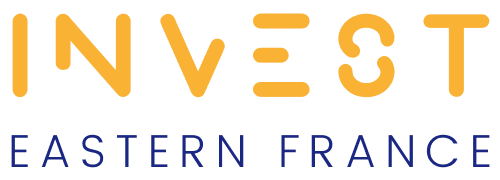
Foodtech in Eastern France
Eastern France’s agrifood ecosystem has been identified as one of the most dynamic in France for foodtech. It has been recognized for its wealth of entrepreneurship, innovative activities, expertise and collaborations.
Some key figures:
A region rich in biomass and supported by a cutting-edge agri-food sector
As France’s second-largest agricultural region, Eastern France makes efficient use of its biomass, which is available in abundance throughout the region.

Eastern France is No. 1 in France
for the production of cereals (1.37 million ha), oilseed and protein crops, vines (48,000 ha), hops and hemp
Thanks to the excellence of its Industry of the Future and the historic know-how of its agricultural, forestry and viticultural producers, the Grand Est region is internationally renowned in the agri-food sector.

Eastern France is No. 1 in France
in agri-food exports (€5.5 billion trade surplus)
To capitalize on this concentration of expertise and know-how, many companies in the sector have joined the Arias du Grand Est. They pool resources and actions to ensure the competitiveness of their members.
Eastern France has developed a thematic ecosystem around foodtech – innovation “from farm to fork”. This includes disruptive players from production (connected and precision agriculture, biotechnologies, alternative proteins) to consumption (digitalized purchasing, personalized nutrition, coaching, intelligent cooking, waste reduction solutions), processing (packaging, food safety) and distribution (deliveries, digitization of the supply chain, marketplaces).

Eastern France also boasts a wealth of talent in the foodtech sector, with specialized training courses ranging from post-baccalaureate to doctorate level. ENSAIA-Université de Lorraine is a major player in this field. This engineering school has redefined itself as a school for innovation and transition in foodtech.
New proteins, a priority for Eastern France
With the prospect of a 40% increase in demand for protein worldwide by 2030, the development of new proteins presents both a potential and a major challenge.
Whether plant proteins, algae, insects or proteins derived from fermentation, these new resources respond to multiple challenges. These include limiting fossil inputs, promoting the food of the future, ensuring the protein and nitrogen autonomy of regions, and creating value between sectors.

Eastern France makes new proteins a priority
From 2022 onwards, the region will be working with partners such as Bioeconomy For Change and the Protéines France association to support this industry in the region.
Eastern France has a number of assets to accelerate the development of the Foodtech sector:
- A presence across the entire value chain: seeds, ingredients, food production, distribution,
- Strong research and innovation capabilities: laboratories and platforms,
- An industrial reality: a dense and dynamic network of start-ups, small and medium-sized enterprises (SMEs), intermediate-sized enterprises (ISEs), groups and cooperatives.
Projects such as ARPEEGE (Autonomie en Ressources Protéiques et Energétiques des Elevages du Grand Est – Protein and Energy Resource Autonomy for Livestock in Eastern France) have been launched with the region’s support. Its aim is to develop and secure complementarity between plant and animal production to guarantee food autonomy for livestock farms in the Grand Est region.
This commitment on the part of the Grand Est region has led to the recent arrival of new, disruptive players in the industry:
- in the field of insect-based proteins: Agronutris in Rethel (Ardennes)
- in plant-based proteins: Umiamiin Duppigheim (Alsace)
- in proteins derived from fermentation:MAASH in Carling (Moselle)




